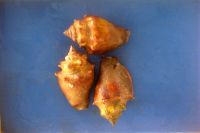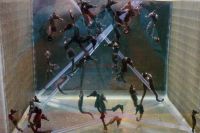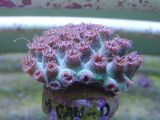Marine Aquaculture
Program
The United States
seafood trade deficit is almost 8 billion dollars per year. This national
trade deficit is second only to oil. Government statistics project that
the seafood demand in the United States
will continue to increase over the coming decades. Given that the oceans
have reached their maximum sustainable yield, the increased seafood demand can
only be satisfied by aquaculture production. The increasing seafood
demand will require a six-fold increase in either domestic aquaculture
production or a commensurate increase in imports over the next 25 years,
further increasing this countries seafood trade deficit. The concept that
a country can grow enough food to meet the needs of its population is the
foundation of a national defense. In this day and age, when the security
of our food supply is more at risk than ever before, it is essential that we
develop the production capability within our borders to meet his demand.
A safe and stable food supply is paramount to our nation’s existence.
Recirculating aquaculture systems are one approach to production of a safe and
sustainable seafood supply.
<>To help achieve the needs for this demand Mote Marine
Laboratory's Marine Aquaculture Program (positioned within the Center for Aquaculture
Research and Development) dedicates its work to developing the technologies
needed to raise fish species of both high market and recreational demand.
This research investigates a variety of marine finfish and invertebrates
including: common snook, red snapper, Florida
pompano, queen conch, and hard corals. Knowledge gained from this
research will be used in both stock enhancement and food production. Currently the Marine Aquaculture
Program has four research locations: Mote Aquaculture Park and Mote's Main Laboratory in Sarasota
County and the Tropical Research Laboratory and Conch Baby Farm
in the Florida Keys. The Center for Aquaculture Research and Development is
constructing new research facilities at Mote Aquaculture Park (MAP) in eastern Sarasota that will eventually replace the aquaculture research
facilities located at Mote's main campus on City Island. As construction progresses, we are moving the research
activities from City Island to MAP. We have already moved our snook maturation and
spawning research, pompano juvenile growout research, and queen conch
growout trials to MAP. Live feeds and larval studies with snook and pompano, as
well as the pompano maturation and spawning research is located at Mote's City Island campus. Coral culture research is located at the Tropical
Research Laboratory and the conch diet studies are taking place at the Conch
Baby Farm facility.
Marine Aquaculture Staff
Program Manager - Dr. Kevan Main
email: kmain@mote.org
Assistant Program Manager - Michael Nystrom
email: michael@mote.org
Senior Biologist - Dave Jenkins
email: davej@mote.org
Staff Biologist - Nicole Rhody
email: nicole@mote.org
Staff Biologist - Matthew Resley
email: resleymj@mote.org
Staff Biologist - Dave Lackland
email: dave@mote.org
Technician - Joseph Drumm
email: drummjc@mote.org
|

 Back
to
Mote
Back to CARD
Main
Page
Main Page
Back
to
Mote
Back to CARD
Main
Page
Main Page







